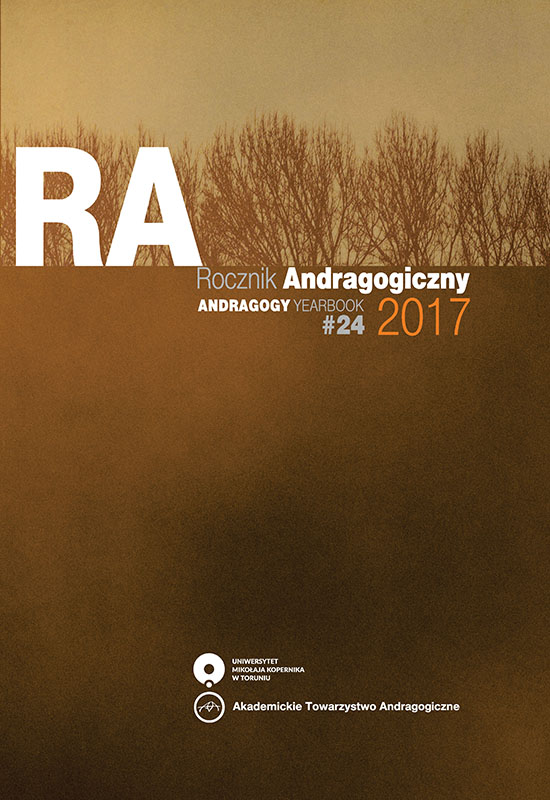New possibilities – better perspectives. Interactive system of reinforcing the process of lifelong learning. Integrated Development Assistant (ZAR)
DOI:
https://doi.org/10.12775/RA.2017.020Keywords
integrated development assistant, e-learning, innovative educationAbstract
Nowadays there are a few tools on the market which support the development of soft competences and build users’ motivation to self-development. One of the newly created tools, which is described in this paper is the Internet application called Integrated Development Assistant (ZAR), which can be accessed at the Internet address: www.zar.edu.pl. The ZAR system differs from the existent solutions because it combines online practices with the face-to-face ones (diagnostic and educational games). It also allows to follow in a flexible way and shape the educational path of an adult, therefore in some areas, it is an innovative tool, offering functions which have not been used in other applications so far and the one integrating various solutions applied in competitive tools. ZAR provides its users with the possibility to use educational contents, development materials, etc. The assumptions of ZAR are based on the concept of real/ideal me by E. T. Higgins.
References
Czarkowski J. J. (2012), E-learning jako sposób edukacji dorosłych, [w:] E-learning dla dorosłych. Warszawa: Difin S.A. http://www.ksiegarnia.difin.pl/imgs_upload/fragment-E-learning.pdf (dostęp: 31.08.2017)
Mikowska M. (2015), Smartfonizacja w Polsce (Raport III edycja). Marketing mobilny w Polsce, s. 6–8. http://www.tnsglobal.pl/coslychac/files/2015/05/POLSKA_JEST_MOBI_2015.
pdf (dostęp: 31.08.2017).
Shield L., Kukulska-Hulme A., Thompson J. (red.) (2008), Mobile Assisted Language Learning, Special Issue of the journal ReCALL. Cambridge University Press: wrzesień 2008.
Smith, A. (2015). U.S. Smartphone Use in 2015 (Raport). Pew Research Center Internet, Science & Tech. http://www.pewinternet.org/2015/04/01/us-smartphone-use-in-2015/ (dostęp: 31.08.2017).
Zając J. M., Krejtz M. (2007), Internet jako przedmiot i obszar badań psychologii społecznej, „Psychologia Społeczna”, tom 2, (3-4) 5, s. 191–200 http://www.spoleczna.psychologia.pl/pliki/2007_3/zajac_krejtz_2007_3.pdf (dostęp: 31.08.2017).
Ziółkowski P. (2015), Teoretyczne podstawy kształcenia. Bydgoszcz: WSG.
Downloads
Published
How to Cite
Issue
Section
Stats
Number of views and downloads: 429
Number of citations: 0



